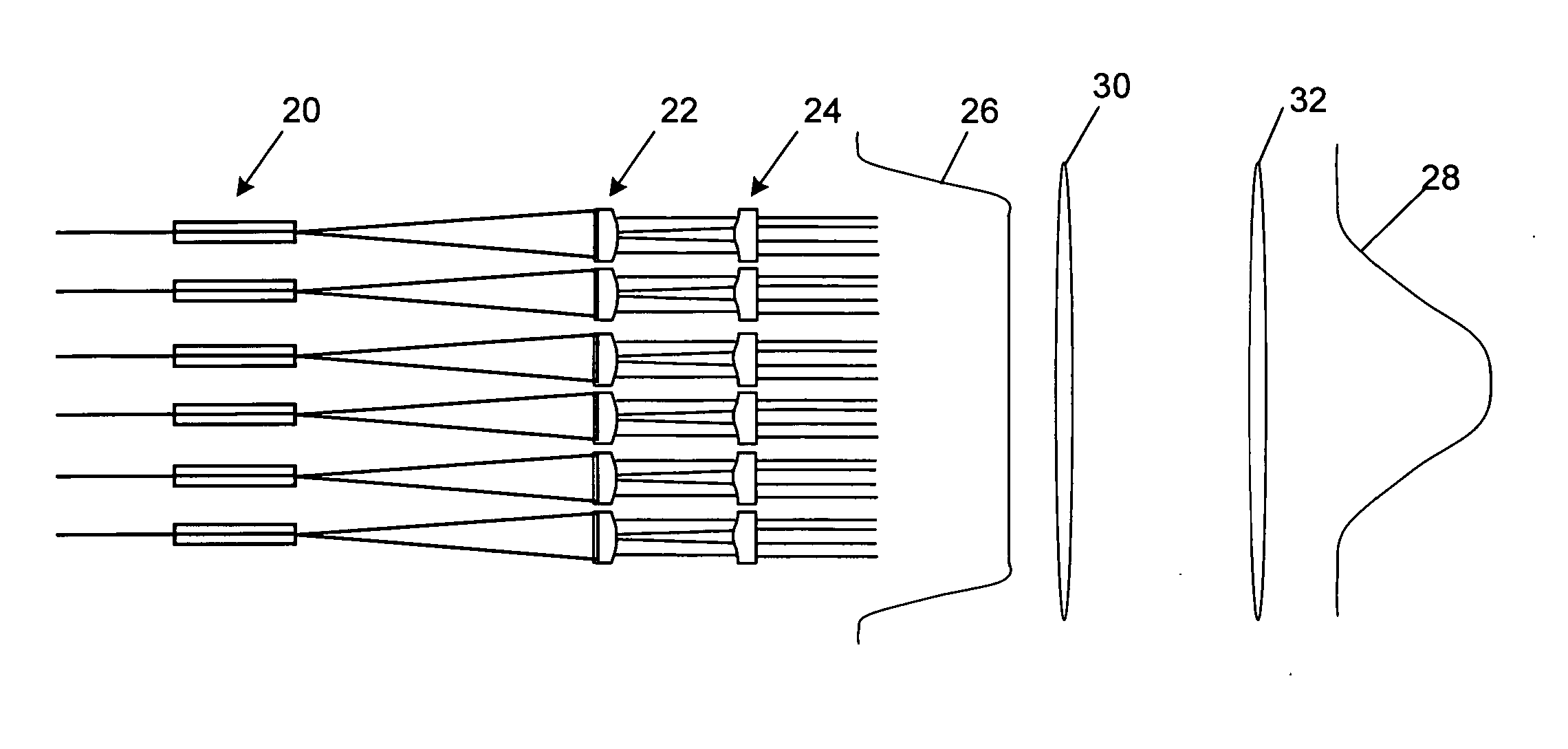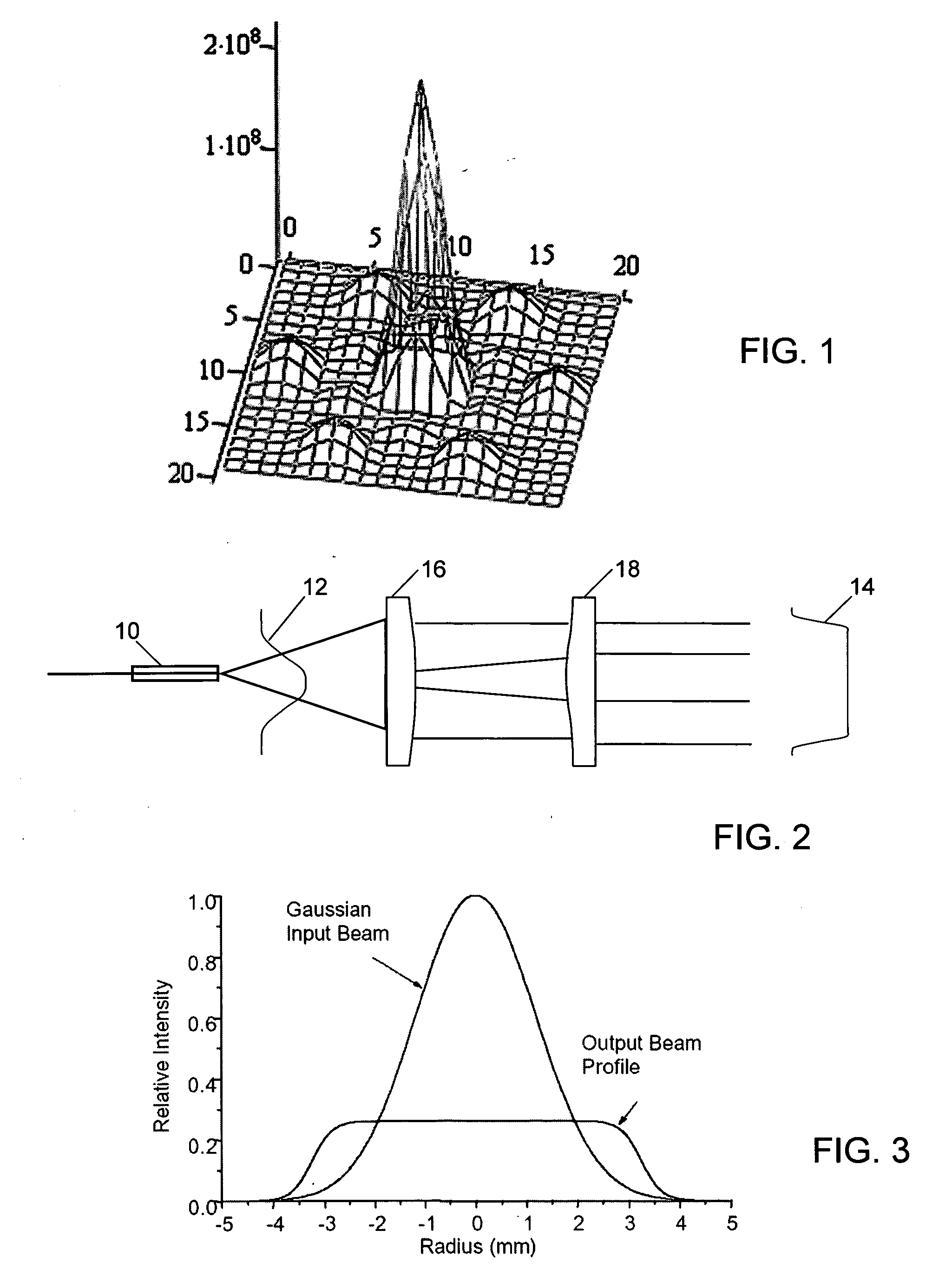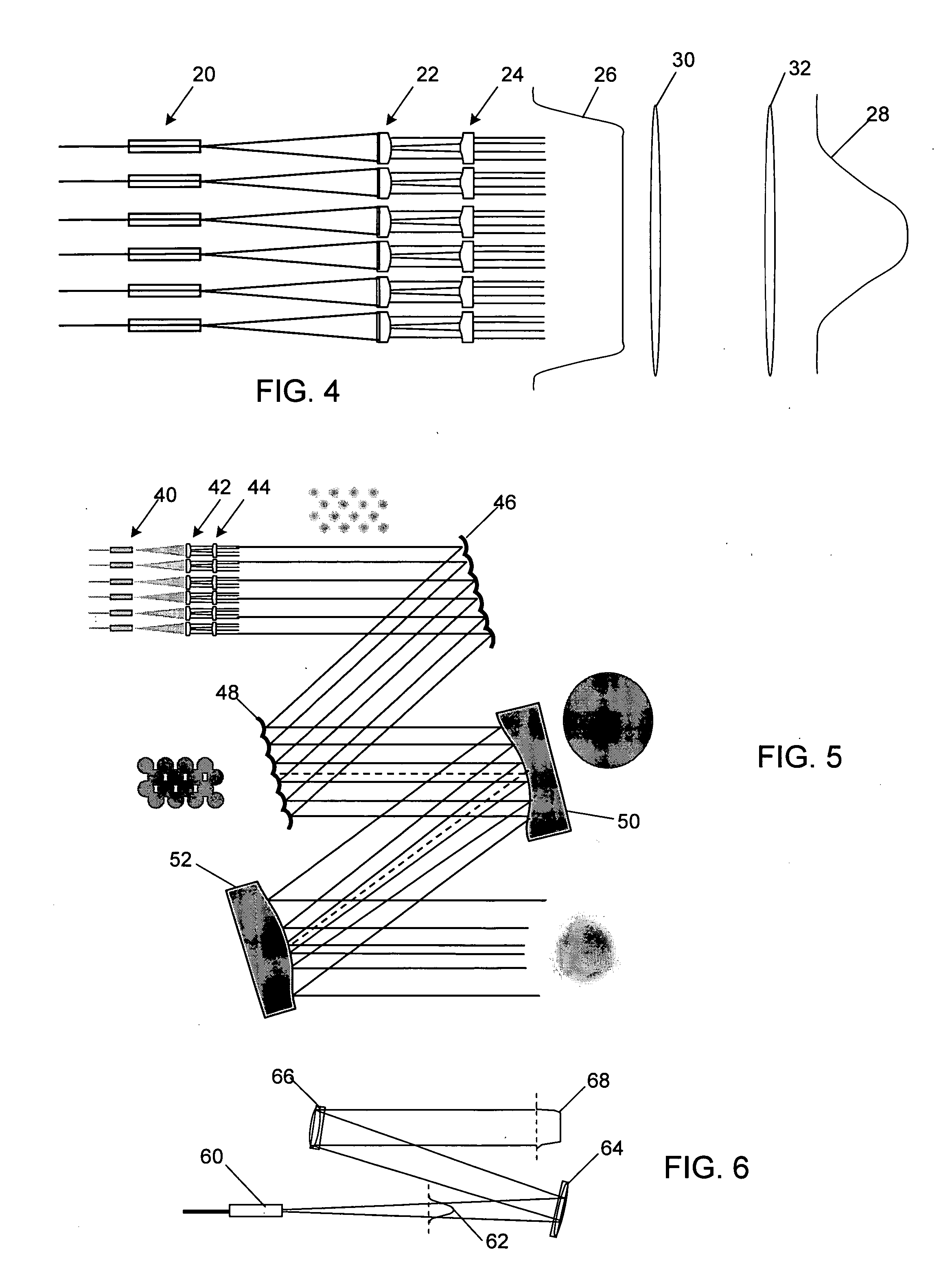Method and apparatus for optimizing the target intensity distribution transmitted from a fiber coupled array
- Summary
- Abstract
- Description
- Claims
- Application Information
AI Technical Summary
Benefits of technology
Problems solved by technology
Method used
Image
Examples
Embodiment Construction
[0020] As shown in the drawings for purposes of illustration, the present invention concerns a technique for combining multiple beamlets emitted from a fiber array, in such a way as to significantly increase the encircled far field energy resulting from the radiation from the overall array. Because of diffraction effects, radiation from an array of fibers does not combine very efficiently into a single more powerful beam. Ideally, such a composite beam should have practically all of its energy confined to a central peak, preferably of Gaussian shape, but arrays typically produce a far field energy distribution in which a significant proportion of the energy falls outside the central peak. Thus the encircled energy at the far field may be as low as 60% or less. FIG. 1 shows the far field energy distribution resulting from radiation from an array of seven fibers, including one central fiber surrounded by six other fibers in a hexagonal pattern. The far field energy distribution is dom...
PUM
 Login to View More
Login to View More Abstract
Description
Claims
Application Information
 Login to View More
Login to View More - R&D
- Intellectual Property
- Life Sciences
- Materials
- Tech Scout
- Unparalleled Data Quality
- Higher Quality Content
- 60% Fewer Hallucinations
Browse by: Latest US Patents, China's latest patents, Technical Efficacy Thesaurus, Application Domain, Technology Topic, Popular Technical Reports.
© 2025 PatSnap. All rights reserved.Legal|Privacy policy|Modern Slavery Act Transparency Statement|Sitemap|About US| Contact US: help@patsnap.com



